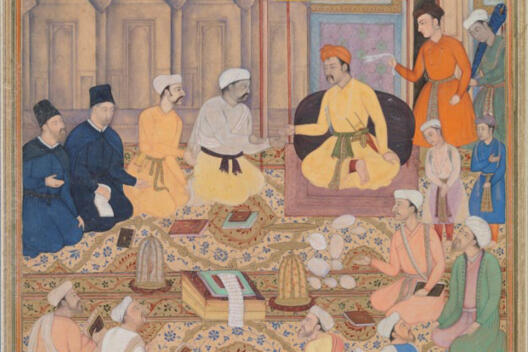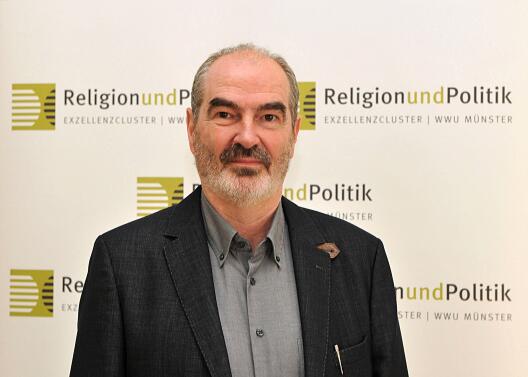“This trialogue is a novelty”
Researchers from all over the world come together for the first theological trialogues between Buddhism, Islam and Christianity in Münster – theologians compare doctrines of the three religions and look for similarities – public lectures on 12 July on the relationship of Islam towards other religions
Press release of the Cluster of Excellence, 6 July 2017

Researchers from all over the world will come together in Münster next week for the first theological trialogue ever between Buddhism, Islam and Christianity. At the Cluster of Excellence “Religion and Politics” of the Münster University, they will compare the central beliefs of the three world religions and discuss their significance for society, as announced by Prof. Dr. Perry Schmidt-Leukel of the Cluster of Excellence, scholar of religious studies and Anglican theology. Two lectures on Wednesday, 12 July, are open to anyone interested. The Islamic theologian Prof. Dr. Mouhanad Khorchide of the Cluster of Excellence will talk about the relationship of Islam towards other religions. The Thai scholar of religious studies Prof. Dr. Imtiyaz Yusuf relates on the increasing tensions between Muslims and Buddhists in Asia. The lecture “Buddhism, Islam and Inter-Faith Relations” (Buddhismus, Islam und interreligiöse Beziehungen) will be held in English and starts at 6:15 pm in lecture hall KTh1, Johannisstr. 8-10 in Münster.
“This theological exchange between Buddhism, Islam and Christianity is a novelty”, Prof. Schmidt-Leukel emphasises. For years there has been a dialogue between Christianity and Buddhism as well as approaches for a Buddhist-Islamic exchange. “Now it is time to bring together the three big religions to talk at one table.” About 20 researchers from Japan, the USA, Thailand, Vietnam, Turkey and Germany are expected to attend the expert talks between 12 to 14 July. The focus of the conference will be on the Buddhist, Christian and Islamic concept of man as well as their respective ideas of evil. The conference is part of a series within the framework of the project “Shin Buddhism, Christianity, Islam: Conversations in Comparative Theology” (Shin-Buddhismus, Christentum, Islam: Gespräche vergleichender Theologie). Following the opening convention in Kyoto in February, which focused on truth and reality, and the coming lecture in Münster, the researchers will speak about questions of religious and social actions of the three religions at Georgetown University in Washington in 2018.

“The aim of interreligious fundamental work is,” says Schmidt-Leukel, “to gain new forms of theological reflexions by comparing the basic belief principles as well as to integrate insights from other religions into one's own.” The symposium's participants make use of the method of “comparative theology”. Each topic is presented from the point of view of a Christian, a Buddhist and an Islamic scholar, then they all will discuss which insights arise for their own religion. At the Cluster of Excellence, Prof. Schmidt-Leukel concentrates on interreligious theology. He heads the trialogue project together with the Japanese expert on Buddhism Prof. Dr. Dennis Hirota from the Ryukoku University in Kyoto. (ill/vvm)

